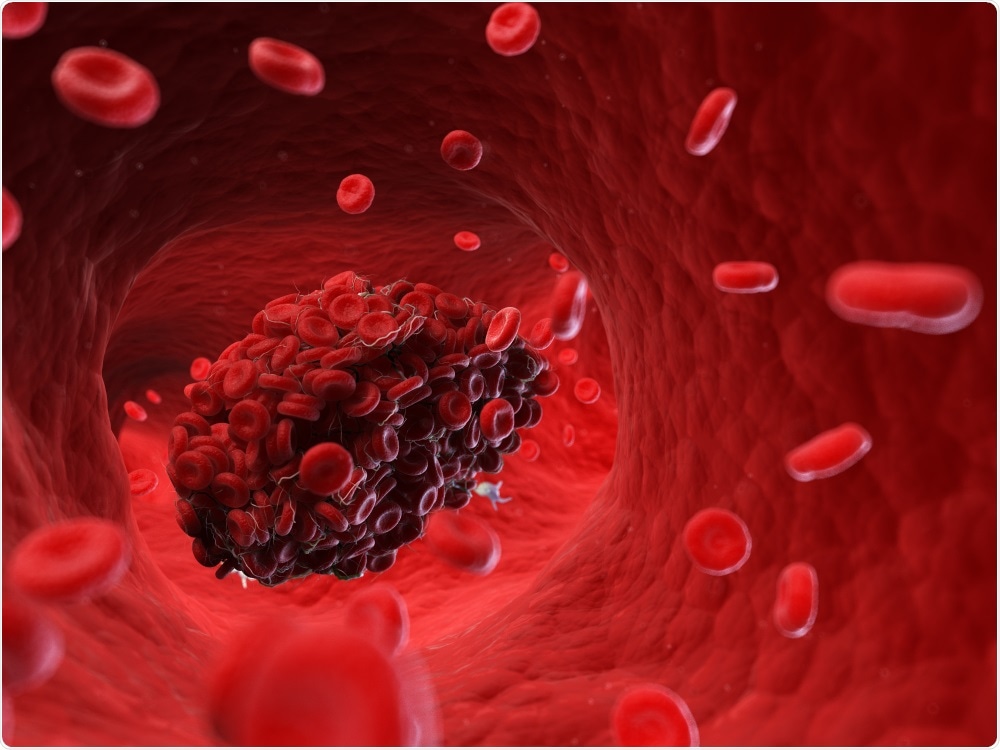According to a study published in the eLife journal, a novel tool using cutting-edge technology has the ability to differentiate various types of blood clots depending on what caused them.

Image Credit: SciePro/Shutterstock.com
The new tool could assist doctors in diagnosing the factors that caused a blood clot and help them choose a treatment that focuses on the cause to break it up.
For instance, it could assist the doctors to determine if aspirin or another type of anti-clotting drug would be the optimal choice for an individual who recently had a stroke or heart attack.
When platelets, small sticky blood cells, cluster together, it can lead to blood clots. This could help stop bleeding following a cut, but it can also block blood vessels and cause a stroke or a heart attack that can be detrimental.
Different types of blood clots are caused by different molecules, but they all look very similar, What’s more, they are nearly impossible to tell apart using existing tools such as microscopes.”
Yuqi Zhou, Study Lead Author and PhD Student, Department of Chemistry, University of Tokyo
Zhou and her collaborators collected blood samples from a healthy individual and then subjected them to different clotting agents.
Their aim was to create a more effective way to detect various types of blood clots. Using a method called high-throughput imaging flow cytometry, the researchers captured a large number of images of various types of clots.
Then, using a machine-learning technology, known as a convolution neural network, the researchers trained a computer to detect fine differences in the shape of different types of clots induced by different molecules.
The tool was tested on 25,000 clot images that the computer had never observed before, and the researchers found that it can also differentiate many of the clot types in the images.
Finally, the researchers tested the new tool, which they called the intelligent platelet aggregate classifier (iPAC), to find out if it can diagnose different types of clots in human blood samples. They collected blood samples from four healthy individuals, subjected them to various clotting agents, and demonstrated that iPAC could distinguish different types of clots.
We showed that iPAC is a powerful tool for studying the underlying mechanism of clot formation.”
Yuqi Zhou, Study Lead Author and PhD Student, Department of Chemistry, University of Tokyo
She added that considering the latest reports that COVID-19 leads to blood clots, the technology may also be used in the future to better understand the mechanism involved in these clots, even though not much is known about the virus.
Using this new tool may uncover the characteristics of different types of clots that were previously unrecognized by humans, and enable the diagnosis of clots caused by combinations of clotting agents, Information about the causes of clots can help researchers and medical doctors evaluate the effectiveness of anti-clotting drugs and choose the right treatment, or combination of treatments, for a particular patient.”
Keisuke Goda, Study Senior Author and Professor, Department of Chemistry, University of Tokyo
Source:
Journal reference:
Zhou, Y., et al. (2020) Intelligent classification of platelet aggregates by agonist type. eLife. doi.org/10.7554/eLife.52938.